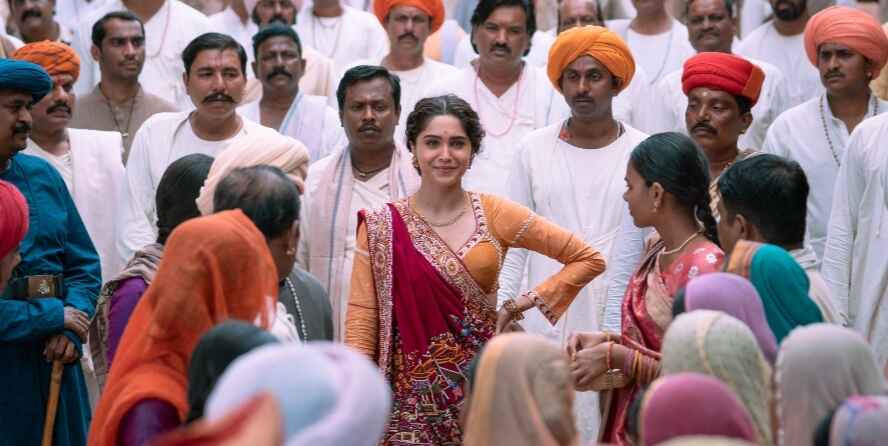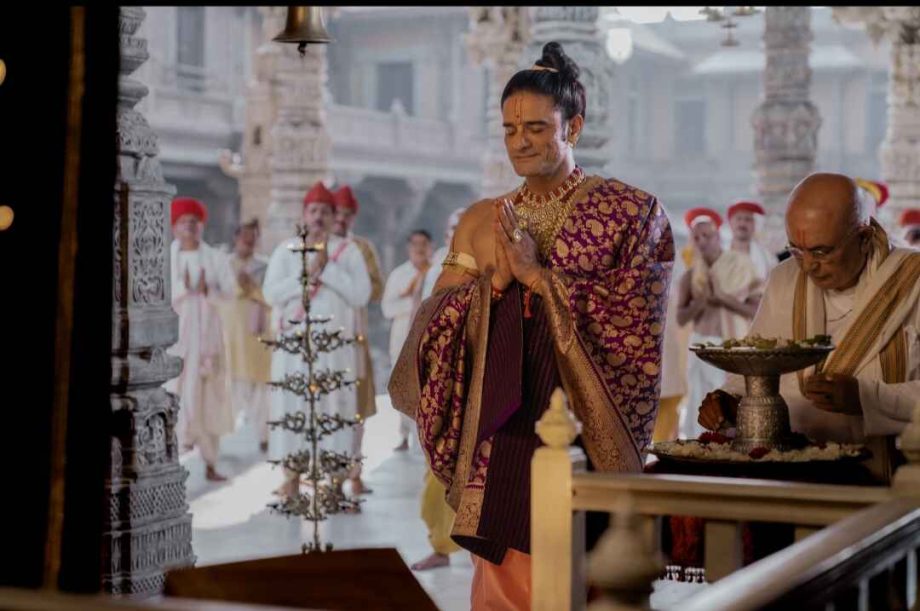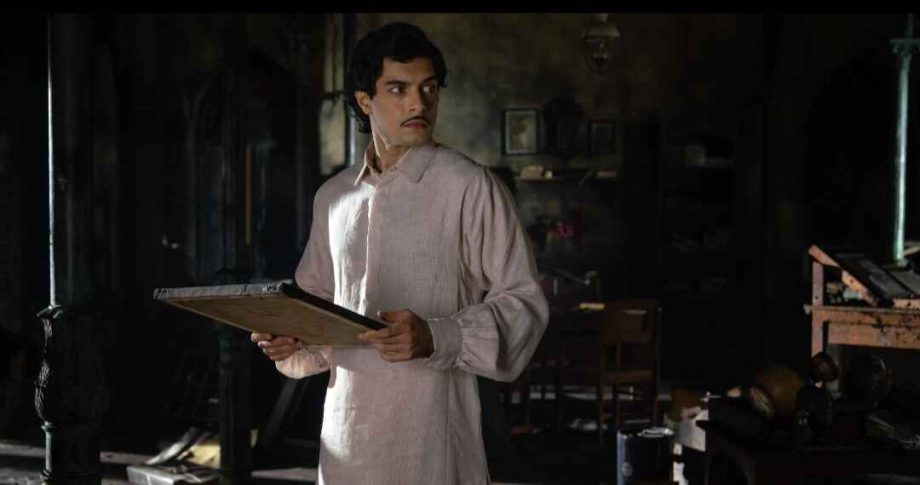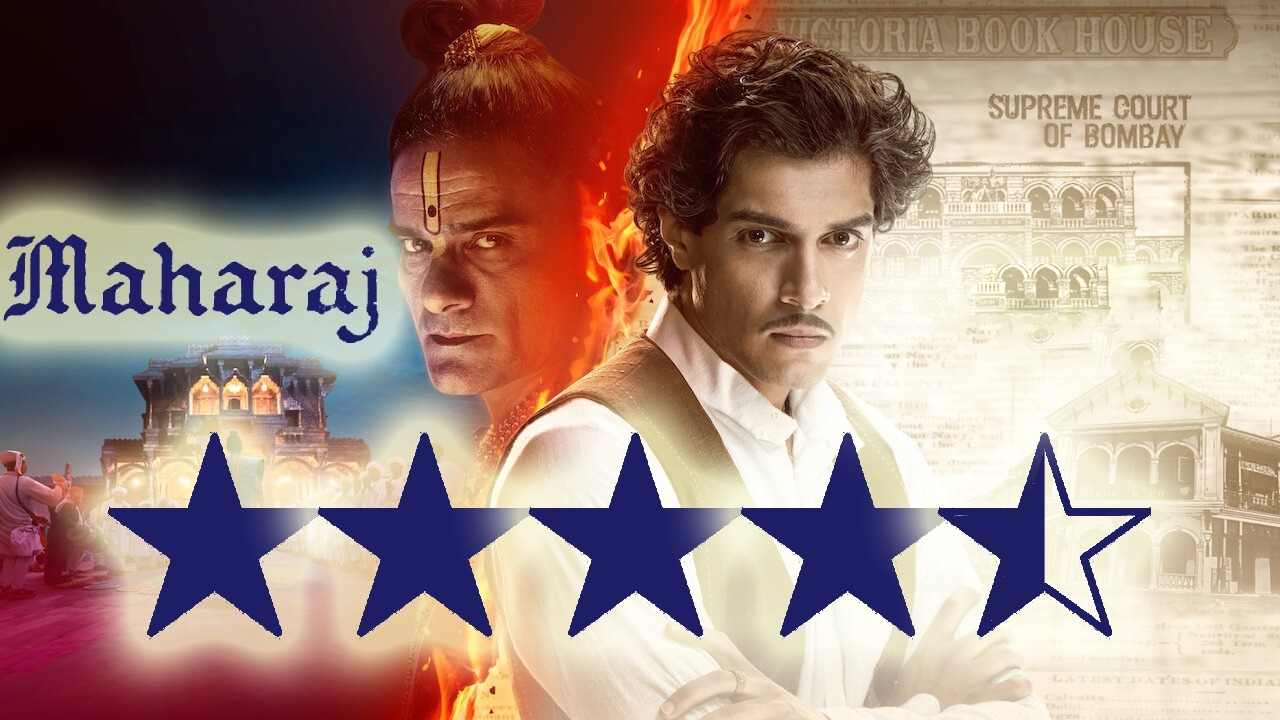Rating – ****1/2 (4.5/5)
How do you make sure a starkid’s debut just becomes a case of focusing about the film and his/her work and not about the white noise that usually surrounds this narrative? Just drop the project directly on OTT without any teaser, trailer and literally nothing except one poster.
That was the intention initially but little did Netflix or YRF Entertainment anticipate that the film will face an ordeal they did not anticipate, or may be they did.
It perplexed me and I am sure many out there, and we all had our whys in place! There would not have been a quieter arrival of a starkid but instead there is now a conversation and buzz that helps Junaid Khan, the son of superstar Aamir Khan with Maharaj. Jr. Khan finally arrives with Maharaj – a collaboration of Netflix and YRF Entertainment which explores a fictitious depiction of a real case from back in the 1860s.
The period drama is about the Maharaj Libel Case from 1862 which saw one man, Karsandas Mulji (Khan) going up against Yadunath Maharaj, a self-proclaimed GodMan Jadunathji Brijratanji Maharaj (Jaideep Ahlawat) who exploits women sexually in lieu of being an offering to God – to the extent where men and their wives are entirely brainwashed into believing and celebrating it.

Maharaj doesn’t waste too much time in getting to brass tacks where a gentle and token background of Karsan is given for you to understand how he is a curious cat who asks questions and the right questions more often than not. But his world flips over entirely when his fiance, Kishori (Shalini Pandey) willingly offers herself to Jadunath Maharaj (Jaideep Ahlawat) and feels she is the ‘lucky one.’ Karsan was always a rebel but when things become personal for him, his rebellious self accentuates enough to challenge the high order himself.
It is fascinating that despite no revelation of the film’s assets (trailer, teaser etc) an uproar happened and the film witnessed a stay order.
One of the final lines of the film says, ‘dharm guru ke sirf naam badlenge, kisse vahi rahenge’, – 162 years later it boggles to think this statement still holds and probably even more.

Nevertheless, coming to the film’s cast, Jr. Khan makes an impressive debut and proves how he does have the acting chops to do good work and be an actor first! The monologue in the final act in a courtroom scene sees Khan being at his best. He is understandably raw especially with the cameras but proves that he has it in him.
Weirdly, Shalini Pandey’s role, while pivotal to the film is actually much shorter than anticipated. And then parallely, you have Sharvari, who is credited with a ‘special appearance’ tag but she is actually present throughout the film and has a much bigger impact. Not so that Pandey isn’t – she does well but her track feels a bit stretched and drags proceedings; and on the other hand, Sharvari couldn’t have a better time right now where after having a spectacular hit in the form of Munjya, she now proves her acting chops and versatility playing a Gujarati village belle who is chirpy, fun-loving and progressive. Her introduction infuses the much-needed humor, fresh air that deviates you from the gravitas of the film’s subject matter.
However, I so wanted to tell Jaideep Ahlawat, if he was there – ‘ek hi Dil hai Jaideep Sir, kitni baar jeetoge?’ As the vicious godman who is as negative as a character can be in this realm, Ahlawat delivers a knockout performance. His niceness (as projected to be) and gentle tonality of voice; his smile makes him even more devious and ruthless and what presence Ahlawat brings to this role. And Mr. Ahlawat, have you been working out? Damn! The actor’s long luscious hair with a towering presence and doing so little and still making the biggest impact just reminds us that it is a Jaideep Ahlawat world and we are living in it.

The director Siddharth P. Malhotra churns out his best work not only in respect to the research of the subject matter but also being respectful and authentic with the grimness of the topic.
To further credit the team of the film, Maharaj excels with its technical departments as well, especially the production design as the team transports you to the late 1800s and never lets you get out of it with any visible flaws. The dialogues, at times rather heavy with their essence do strike a chord as and how they are intended to. Apart from the line I said above, other lines like – ‘sawal na puche voh bhakt adhura, aur jawab na de voh dharm,’ ‘naam se karm nahi, karm se naam hota hai’ and several others are whistle-worthy and suit the setting without appearing over-the-top.
In the end, the misguided rage of a certain section of people might have been the central conversation but Maharaj is a film that cannot be missed. A spectacular depiction of a case that even after a century and a half later feels relevant and that’s a thing of worry, not celebration.


